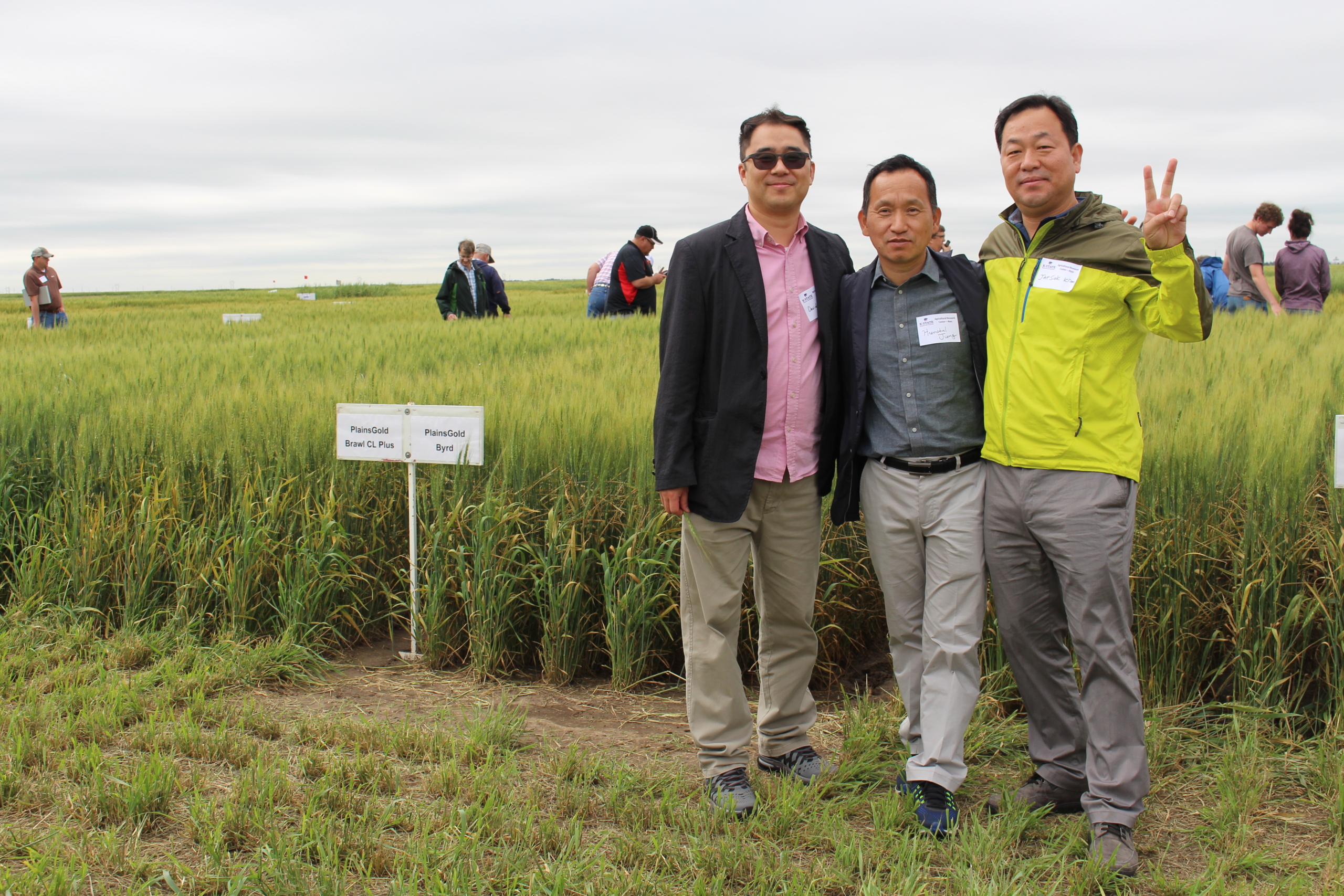Wheat Quality Improvement Programs Support U.S. Wheat Value Proposition
U.S. wheat is seldom the least-cost option for importers, but it has a reputation for quality that adds critical value. Recognizing that quality starts with the seeds farmers sow, USDA Foreign Agricultural Service (FAS) cooperator U.S. Wheat Associates (USW) gathers feedback from its overseas customers that is shared with the scientists who breed new wheat varieties at home.
With partial funding from the Foreign Market Development program, for example, USW and state wheat commissions in Oregon, Washington, North Dakota and Minnesota organized a Wheat Quality Improvement Team (WQIT) of four university wheat breeders to meet with customers in Japan, Korea and Thailand April 18 to 26, 2015.
The breeders heard what wheat buyers, flour millers and wheat food producers like and do not like about U.S. soft white (SW) and hard red spring (HRS) wheat quality. At the same meetings, the breeders informed these customers about their work to improve the quality and yield potential of newly released varieties. This was the fourth WQIT led by USW. In 2004, a similar trip was made to Asia, followed by Latin America in 2009, and Europe and North Africa in 2010.
The team also took part in an Overseas Variety Analysis (OVA) program event at the UFM Baking School in Bangkok, Thailand. Through OVA, USW creates direct comparisons between U.S. varieties and competing wheat supplies. Working with the Wheat Quality Council, USDA’s Agricultural Research Service, state universities and wheat commissions, USW selects new varieties to mill and sent to overseas cooperators in top markets who analyze their quality in end-use projects and compare them to standard control flours.
Feedback from the OVA program and this year’s WQIT will bring results home to the farm. The next step for the WQIT is to apply the feedback and observations to research and wheat breeding programs, as well as share insights with other breeders, wheat producers and invested state wheat commissions. The OVA data will be shared with state wheat commissions and the Wheat Quality Council to set quality targets for breeding research and to develop recommended variety lists for farmers.
These activities create a primary basis for continual improvement in U.S. wheat quality that in turn supports import demand each year. USW used the Foreign Market Development program help fund the recent WQIT and the Market Access Program to engage customers and breeders through the OVA program.


